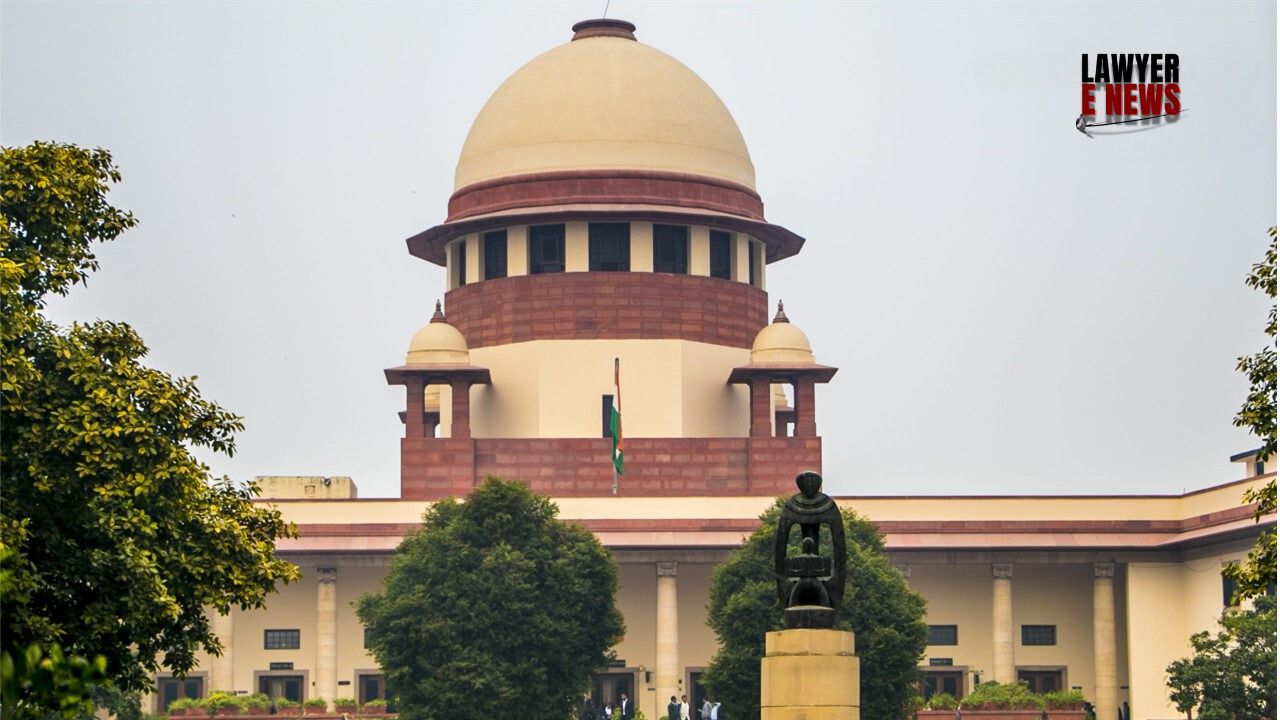-
by Admin
16 February 2026 5:45 AM



"Power to Repeal a Law Is Coextensive with the Power to Enact It": Supreme Court Dismisses KSRTC's Challenge. In a significant ruling Supreme Court of India upheld the Karnataka Motor Vehicles Taxation and Certain Other Law (Amendment) Act, 2003, which repealed the Karnataka Contract Carriages (Acquisition) Act, 1976 (KCCA Act). The Court further ruled that the State Transport Authority (STA) can validly delegate the power to grant non-stage carriage permits to its Secretary, overturning the Karnataka High Court’s finding that such delegation was impermissible.
While dismissing the Karnataka State Road Transport Corporation's (KSRTC) challenge, a Bench of Justice Vikram Nath and Justice Prasanna B. Varale observed: "Judicial decisions upheld the validity of the KCCA Act at the time of enactment, but they do not prevent the Legislature from subsequently repealing it. The repeal was based on evolving transport policy needs and did not amount to overruling a judicial precedent."
The KCCA Act, 1976, was enacted to nationalize private contract carriages and transfer them to the KSRTC, effectively monopolizing contract carriage operations under state control. This statute was previously upheld by the Supreme Court in State of Karnataka v. Ranganatha Reddy (1978) and Vijayakumar Sharma v. State of Karnataka (1990).
However, over time, the Karnataka government recognized severe transport shortages, particularly in rural areas, and decided to liberalize contract carriage services by repealing the KCCA Act through the Karnataka Motor Vehicles Taxation and Certain Other Law (Amendment) Act, 2003.
KSRTC challenged this repeal, arguing that the 1976 Act, once upheld by the Supreme Court, could not be repealed without fresh Presidential assent and that the delegation of permit-granting powers to the Secretary of the STA was unconstitutional.
The Karnataka High Court upheld the repeal of the KCCA Act but struck down the delegation of permit-granting powers to the STA Secretary, leading to appeals by private bus operators and the Karnataka STA before the Supreme Court.
The KSRTC contended that the repeal was unconstitutional, arguing that it effectively nullified previous Supreme Court rulings upholding the 1976 Act and that fresh Presidential assent was required. The Supreme Court rejected these arguments, holding that legislative power to repeal is coextensive with the power to enact.
The Court made a crucial observation: "The power to repeal a law is as extensive as the power to enact it. The Legislature was well within its rights to repeal the 1976 Act in response to changing policy needs. A judicial ruling upholding a statute does not make it immune to future repeal."
It further emphasized that the repeal was a policy decision made to address inefficiencies in the transport sector, stating: "The 1976 Act was enacted to serve a specific public policy objective at that time. With changing economic and social conditions, the Legislature, in its wisdom, decided to repeal it to enable private participation in public transport. Such a decision falls entirely within the legislative domain."
The Court also rejected KSRTC’s contention that Presidential assent was required for the repeal, clarifying: "A repeal does not amount to a re-enactment. It merely extinguishes an earlier law. Since the repeal fell within the legislative competence of the State, no fresh Presidential assent was necessary."
Supreme Court Overturns High Court, Upholds Delegation of Permit Granting Powers to STA Secretary
Another major issue before the Court was whether the Karnataka State Transport Authority (STA) could delegate the power to grant non-stage carriage permits to its Secretary. The High Court had ruled that such delegation was impermissible, citing the quasi-judicial nature of permit-granting powers.
The Supreme Court disagreed, holding that delegation of such functions was valid under Section 68(5) of the Motor Vehicles Act, 1988, and Rule 56(1)(d) of the Karnataka Motor Vehicles Rules, 1989. The Bench observed: "Even quasi-judicial functions may be delegated if the statute expressly permits it. The law in question allows such delegation, and practical considerations necessitate it. The High Court erred in concluding that delegation was impermissible."
The Court emphasized that requiring the full STA to decide every permit application would be impractical, stating: "Transport authorities are burdened with numerous functions. The delegation of routine permit functions to the Secretary is not only legally permissible but also necessary for administrative efficiency."
The Court also underscored the practical implications of not allowing delegation, warning that it could overburden the STA and create unnecessary delays in permit issuance.
"A rigid interpretation would cripple the functioning of transport authorities. Delegation ensures prompt and efficient decision-making while maintaining overall regulatory oversight."
The Supreme Court concluded its ruling with the following determinations:
"The 2003 Repeal Act is constitutional. The Karnataka Legislature was within its powers to repeal the KCCA Act, and no constitutional infirmity exists in the repeal."
"The delegation of permit-granting powers to the Secretary, STA, is valid under Section 68(5) of the Motor Vehicles Act and Rule 56(1)(d) of the Karnataka Motor Vehicles Rules, 1989."
"The Karnataka High Court’s ruling against delegation is set aside. The Secretary, STA, is empowered to grant contract carriage permits, subject to the conditions prescribed under the law."
The appeal filed by KSRTC was dismissed, while the appeals by private bus operators and the Karnataka STA were allowed.
The Court directed that permit-granting processes be streamlined in accordance with its ruling, ensuring that the Secretary of the STA can continue issuing permits as per the statutory framework.
The Supreme Court's ruling solidifies the principle that legislative repeal is a matter of policy, not an unconstitutional act, and reaffirms that judicial precedents upholding a law do not prevent its future repeal.
By validating the delegation of permit-granting powers, the Court has also ensured that transport regulatory authorities can function efficiently without unnecessary procedural delays.
This decision marks a significant shift in Karnataka’s transport regulatory framework, paving the way for increased private participation in the contract carriage sector and a more streamlined permit-granting process.
Date of Decision: February 6, 2025
